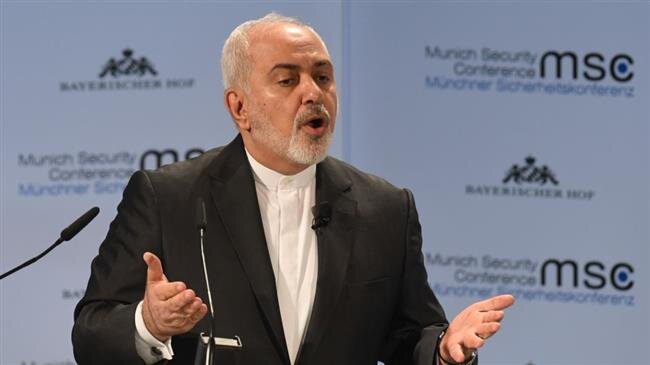Zarif: Saudi Arabia does not seek tension de-escalation

TEHRAN – Iranian Foreign Minister Mohammad Javad Zarif said on Saturday that countries such as Saudi Arabia do not seek de-escalation of tensions in the region.
“If there is a will for reducing tensions there are many ways, but I believe that countries such as Saudi Arabia do not seek de-escalation of tensions,” Zarif told the Munich Security Conference.
“Saudi Arabia and the United Arab Emirates seek tension in our region,” he noted.
However, Zarif said Iran is ready negotiations.
The minister said upon a request by Pakistan’s prime minister for negotiations with Saudi Arabia, “I and martyr General Qassem Soleimani agreed to send a message to Saudi Arabia” for talks on the Yemen crisis and other issues but an Arab prince responded that the “war between Arab countries is not concerned with you.”
The foreign minister also said after the assassination of General Soleimani Iran received messages from “Arabs who said we want dialogue (and) we answered on the same day but since then we have not received any response.”
Iran’s chief diplomat went on to say that Iran does not seek tension with neighbors and that Iran’s security is tied to security of its neighbors.
“We do not want to have problems with neighbors. Security of neighboring countries is tied to our security.”
Pointing to Iran’s Hormuz Peace Endeavour (HOPE), he said that Kuwait, Qatar, Oman and Iraq have accepted the plan, but Saudi Arabia, Bahrain and the United Arab Emirates have not responded yet.
‘Persian Gulf belongs to its littoral states’
Zarif also said that the Persian Gulf belongs to its littoral states and its security must be provided by them.
“The Persian Gulf region belongs to all the neighbors and the regional countries must know that the United States and Israel cannot bring us security. It is the regional countries which must provide security and stability in the region,” he said.
Zarif also rejected claims that those who attended the funeral ceremony of General Soleimani were proxy forces.
“They were ordinary people who are respected and are angry with the United States’ actions. Meanwhile, they are not just in Iraq. They took to streets in India, Italy and Russia holding images of General Soleimani,” he said.
PA/NA
Leave a Comment